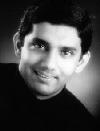Michael Fumento
Factual · Powerful · Original · Iconoclastic
Racial Politics Make Strange Enemies
January 01, 1996 · Michael Fumento · RacismWhoever said that lynch mobs are a thing of the past in this country hasn’t seen the pack chasing Dinesh D’Souza with a rope.

Dinesh D’Souza
D’Souza is the John M. Olin fellow at the American Enterprise Institute (AEI) and author of the just-published bookThe End of Racism, which is the source of all the controversy.
The book challenges the idea that racism is the primary cause of black problems, and says that the civil rights community, while once a boon to blacks, has become more of an albatross. D’Souza’s ultimate target is failed liberal policies, which is why it’s interesting that most of the early and very angry criticism of the work has come from the right.
Upon publication of the book, two AEI black conservative adjunct fellows, Glenn Loury and Robert Woodson, angrily resigned their positions. Loury also wrote a damning review of the book for the new conservativeWeekly Standard.
The resignations then became subject of an even more damning column by William Raspberry. While not really a conservative, Raspberry has nonetheless shared the views of Woodson, Loury, and yes, D’Souza, that the liberal approach to the problems of the black community leaves much to be desired and that tagging all opponents as racists is generally counterproductive.
Yet Raspberry tagged D’Souza’s work as one "only racists could cheer" while Woodson went even further, calling D’Souza "the Mark Furhman of public policy."
Can he really mean that? Can this be said of a writer whose book black conservative Thomas Sowell has called the best book on the topic in half a century?
Would Mark Furhman have written a book former NAACP Chairman Margaret Bush Wilson has called "rich and provocative" or that a former chairman of the Equal Employment Opportunity Commission said was "of stunning eloquence and power" with "a profound vision for transcending the pathology of race"?
Part of the problem, no doubt, is that some people would rather attack a 742-page book than to bother actually reading it.

Thus an article in USA Today says the book maintains "many people are racist for good reason." No, actually it says many people who might be accused of being racist are not; rather they act out of rational prejudice. Thus cab drivers — white, black, Hispanic, and Asian — are far more likely to shy away from young, black male fares because they know they are far more likely to be robbed and killed by them.
Recall the Rev. Jesse Jackson’s words about walking "down the street and hear[ing] footsteps and start thinking about robbery, then look around and see somebody white and feel relieved."
Either the USA Today reporter is lying or hasn’t read D’Souza’s book, but in any case his readers will believe that D’Souza has said there can be a good reason for racism. Some of them repeat the charge in what may become a snowballing effect.
Likewise, Raspberry concludes his column saying "D’Souza strives mightily to convince us there aren’t any" racists. In fact, D’Souza has a whole chapter called "Bigotry in Black and White" which says that while the old style of racism is on the decline a new type is on horizon and may be on rise.
As both author and book make repeatedly clear, the point isn’t that racism is dead. Rather, D’Souza says, "In a contemporary sense racism is no longer the prime obstacle raised by African-Americans or any other group.
"If white racism ended tomorrow," D’Souza told me, "this would do little to improve black test scores, increase black savings rates, boost black rates of business formations, reduce black crime or strengthen black families. Those are the most serious cultural challenges facing black Americans, especially poor blacks. Racism is not the most serious challenge." Do these sound like the ravings of a hooded skin-headed neo-Nazi Aryan Nation scumsucker? So why all this anger?
Says D’Souza, "I think the hidden key to this thing is that I’m not black and that I’m discussing these things in public."
That theory is certainly supported by the title of the column about D’Souza’s book in the St. Petersburg (Florida) Times: "An Outsider’s Arrogance." Ooh, feel the indignation! If D’Souza has been wrong about one thing it was in thinking that being "a person of color" would protect him from charges of messing with other people’s business.
As a native of Bombay, India, he is indeed a cultural and ethnic hodge-podge. He’s Asian yet Caucasian rather than mongoloid; he’s lighter than Clarence Thomas though darker than Whitney Houston and one hell of a lot darker than Michael Jackson.
But black he ain’t.
Yet D’Souza was right in thinking that the debate over black problems must be open to all races and ethnic groups. It’s a good thing that early women’s rights advocates didn’t have such a sectarian view. After all, by definition 100% of the people who gave women the right to vote were men.
America is 88% non-black. It was white government policies that helped create the terrible problems so many blacks face today. Thus non-blacks will have to play a major role in ending those problems. Disagree with D’Souza if you wish, but read him first. And salute one man with the guts to squarely confront one of our nation’s most vexing problems.
